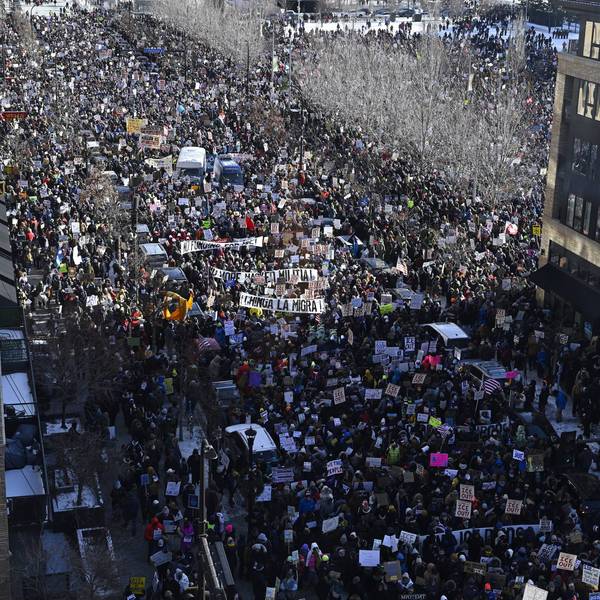Thousands of women across Iceland walked out of work at 2:38pm local time Monday to protest the country's gender wage gap, arguing that their lower wages mean they effectively work without pay after that point.
"No woman chooses to be oppressed," said one activist filmed in Reykjavik during the protest by the U.K.'s Channel 4 News. "No women chooses to get paid less than men."
The walk-out occurred on the 41st anniversary of Iceland's famous Women's Day Off, when 90 percent of women in Iceland stopped working--at home and on the job--to raise awareness of the role women's work plays in society.
The day, which saw women rallying in the center of Reykjavik while men scrambled to take care of children, cook, and work the lower-paying jobs that women tended to hold, was later referred to by many men as "the long Friday." It paved the way for the first election of the world's first democratically elected female president, which happened five years later, Annadis Rudolfsdottir recalled in the Guardian.
But decades later, women in Iceland still earn 14 percent less than their male counterparts. (In the U.S., women working full-time earn 20 percent less than men.) On October 24th each year, women in Iceland leave work once again and rally during what's now known as Women's Day for Equal Pay.
Refinery29 observes:
A similar event was held in 2005, when women stopped working at 2:08pm. The time from which the demonstrators stopped working has been gradually getting later each year, an indication that the pay gap has been slowly narrowing.
In 2008 they left at 2:25pm--just three minutes earlier than this year. At the current rate, it's estimated that women in Iceland [...] won't be paid the same as men until 2068.
Three minutes are added on average each year, The Reykjavik Grapevine reports.
"Gylfi Arnbjornsson, president of the Icelandic Confederation of Labor, told the country's official national broadcaster RUV, that for 60 years it has been illegal in Iceland to discriminate on the basis of gender," the Independent writes. "Wage contracts can take into account education level and type of job, but not whether someone is male or female."
"No one puts up with waiting 50 years to reach a goal," Arnbjornsson told the British newspaper. "It doesn't matter whether it's a gender pay gap or any other pay gap. It's just unacceptable to say we'll correct this in 50 years. That's a lifetime."
A rally was held in downtown Reykjavik Monday afternoon. Participants shared photos and videos of the demonstration under the hashtag #kvennafri ("Women's Day Off"):



